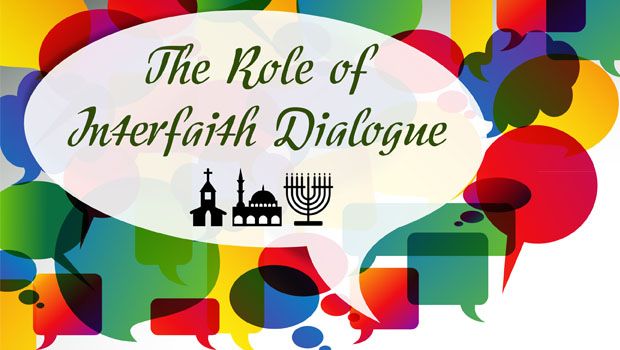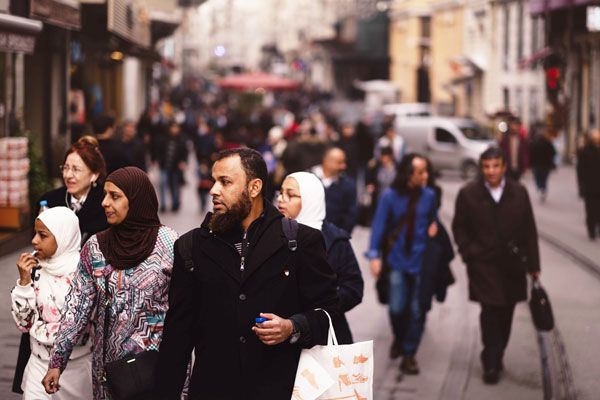“Help the skilled laborers and serve the disabled” (Bukhari 2382, Muslim 250). From the treasured Prophetic lessons for human society come these important moral instructions concerning public service. The Prophet instructed his followers to be committed to the service of others. It is a basic ethical value, recognized by all cultures and by all faith traditions. Yet, the genius of the Prophet of Islam lay not only in the advice, but in his choice of words and in his ability to diagnose and prescribe—in the most precise ways—the most effective solutions for the problems faced by people.
These particular instructions were given to Abu Dharr al-Ghifari, a devoted Companion, who was interested in prioritizing his deeds and discovering those that were the most valuable and pleasing to Allah. Among the advice given to him was this lesson in public service. Those who were interested in maximizing their rewards and being the truest believers must serve others. For this reason, the Prophet stated on another occasion, “The best of people are those who benefit others.”
The Prophet taught that public service extends to all. Believers serve everyone, not just those who are overtly needy. And so the Prophet mentioned first the skilled laborers. This may appear counter-intuitive. Why help those who are able to work? The answer to that, as we shall see, points precisely to the Prophet’s genius.
The disabled, handicapped, and those obviously in need of help definitely deserve our help. And we must help them. But at the same time, they are the ones who are most likely to be assisted and supported. For this reason, you will find everywhere that people go out of their way to open the door for those who are in wheelchairs and using crutches. You will find people lending a hand to a mother carrying bags while pushing a baby in a stroller, and cars stopping at green lights for senior citizens slowly crossing the road.
The reality is that the segments of the population that tend to be overlooked are those who have some skills, who are able to work, who are not overtly disabled. The greater part of charity, public assistance, and governmental aid policies and programs apply to the obviously poor, and in some countries, tax and monetary policies favor the wealthy. The rest are left to fend for themselves.
It is for this reason that the issue of the rights of workers has been of historical interest. This issue led to the rise of certain political movements that profoundly impacted the world stage—often in negative ways—such as communism and socialism. The issue of workers’ rights has kept labor unions alive and labor laws operative in our country. There still exists a general neglect for the interests of the working class, with only sporadic attention to this very real issue. And this issue takes center stage in the political debate in the countdown to the presidential election.
The recession has drastically reduced available funds for welfare and other social safety-net programs, and this has adversely affected both the poor and the working middle class. The disabled and unemployed still qualify for assistance, which—depending on your political persuasion—is either too little or too much. And so Romney famously attacked the 47%—those who are out of work or work so little that they pay no income taxes at all. Low-income wage earners receive subsidies mainly in the form of food assistance and health coverage, although Medicaid is being slashed in many states. The very wealthy are also taken care of in the form of tax breaks and Federal Reserve policies such as the current QE3 (quantitative easing #3) which really only boosts the stock market and the housing market, both of which favor those at the high end of the wealth-distribution spectrum. And corporations are supported through bailouts and subsidies, widely supported by legislators on both sides of the political aisle. Those in the middle class are left to fend for themselves. There is a growing recognition that many in the middle class are sliding below the poverty line. And despite the current modest increase in jobs, the US Bureau of Labor Statistics reports, “Most of the 10 largest occupations in May 2011 were relatively low-paying occupations, such as retail salespersons, cashiers, and general office clerks.”
With the above-cited hadith, the Prophet reminds us that everyone benefits when there is collaborative effort, mutual help and assistance in creating a healthy, prosperous, just, and compassionate society. In a practical, contemporary sense, helping the skilled laborer can take the form of providing opportunities for continuing occupational training and improvement of skills. But the symbolism of the Prophetic advice to “help the skilled laborer” could be that we are all to contribute to the “building” of a good society, offering whatever abilities and resources we have to enhance the lives and ensure the welfare of all sectors of the society. We are to be committed to “serving the disabled.” But we are also to commit to help (i.e., enhancing their lives, ensuring their security, providing opportunities for advancement) for those who are considered able-bodied, of sound mind, and capable of work. Those who have abilities and aptitudes should be augmented in those skills, and those who have potential abilities should be assisted to realize them. This is the clear moral priority, as conveyed by the age-old adage “Give a man a fish and you feed him for a day; teach him to fish and you feed him for a lifetime.”
“Help the skilled laborers and serve the disabled” tell us, in the final analysis, that we are to devote ourselves to creating the greatest possible good for the greatest possible number of people. That is our moral obligation. Anything less would be a betrayal of the Prophetic legacy.





